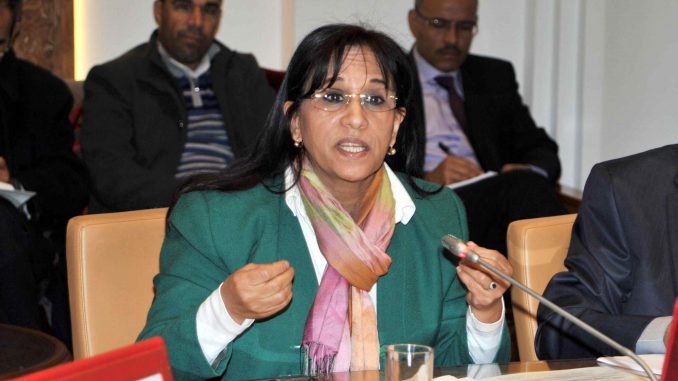
Amina Bouayache is one of the women of whom Morocco and Moroccans are proud. She is a model of the Moroccan woman who has dedicated her life and career to defending the rights of the oppressed, both as a political activist within the Socialist Union of Popular Forces and as part of her work with the Moroccan Organization for Human Rights, and as part of her participation in the implementation of the recommendations of the Equity and Reconciliation Commission, with the aim of compensating the victims of the arbitrary arrests of the so-called lead years in Morocco. It is on the occasion of this prestigious career that HM King Mohammed VI appointed her as head of the National Council for Human Rights, in recognition of her determined service in the field of human rights.
Amina Bouayache, who was appointed by Prime Minister Abderrahmane Youssoufi as a media consultant, holds several degrees, including a Master’s degree in political economy from Mohammed V University in Rabat. She has already held several important positions: Ambassador of the Kingdom of Morocco to Sweden, Secretary General and Vice-President of the International Federation for Human Rights, founding member of the Euro-Mediterranean Foundation to Combat Enforced Disappearances and member of the Regional Forum for the Middle East and North Africa responsible for ratifying the Optional Protocol to the Convention against Torture and the monitoring of detention centers, among others.
Amina Bouayache was born in 1957 in Tetouan in northern Morocco, into a family of Amazigh origin. In 2014, she was awarded the Order of the National Legion of Honor by the French Presidency, in recognition of her efforts to promote human rights and her action in favor of women’s freedoms.
Amina Bouayache, who speaks four languages (Arabic, English, French, Spanish), has worked on controversial issues such as torture, refugee rights, women’s rights, the death penalty and issues relating to individual freedoms.
Despite the criticism to which she is subjected today in her capacity as President of the National Human Rights Council, particularly with regard to her position on the events of the Rif, or her previous statements that there are no political prisoners in Morocco, Amina Bouayache’s career and history testify to her loyal service to prisoners and their families and her action to establish the human rights culture in Morocco.

Be the first to comment